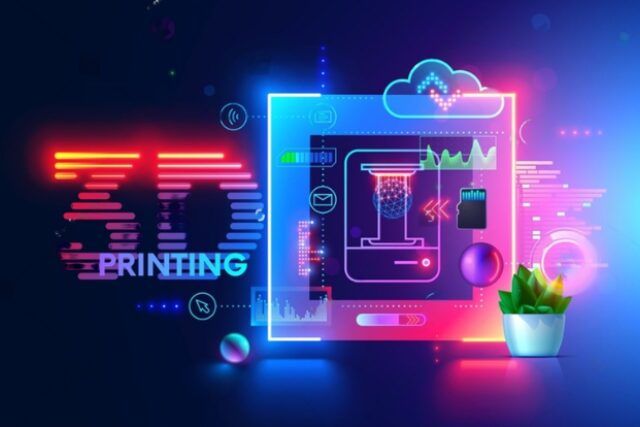Dubai’s toy industry is growing rapidly, driven by innovation, creative design, and global partnerships. Toy companies based in the city are not only manufacturing for the local market but also exporting to regions across the Middle East, Asia, and Europe. In this fast-paced environment, securing licensing approvals is a key part of launching new toys.
To stay competitive, many Dubai toy companies are now using 3D prototyping to accelerate this process. This approach allows them to move faster from concept to approval while reducing costs and design risks.
Licensing in the Toy Industry Explained
Licensing is a critical process in toy development. Companies must secure approvals to create toys based on characters, films, brands, or games. This often involves working with global licensors like Disney, Marvel, or gaming companies.
Before approval is granted, licensors want to see exactly how the toy will look and function. They review shape, size, branding placement, colors, packaging, and overall safety. Any delays in this process can push back release dates and affect revenue.
The Traditional Challenge of Licensing Approvals
In the past, Dubai toy companies had to rely on sketches, digital renders, or expensive handmade samples for licensing reviews. These methods were time-consuming and often led to back-and-forth revisions. If a change was required, the entire sample had to be rebuilt. This caused delays in approvals and slowed down the entire production timeline. In a market where timing is critical—especially during holiday seasons or movie releases—this was a major problem.
How 3D Prototyping Changes the Game
3D prototyping now offers toy companies in Dubai a faster, smarter solution. Using 3D printers, designers can quickly create physical models of new toys based on digital files. These prototypes can be reviewed in detail by licensors before production begins. Changes can be made immediately and tested again with a new print. This rapid iteration means faster feedback loops and quicker approvals.
Faster Visual Feedback for Licensors
A physical prototype gives licensors something real to evaluate. Unlike a digital render, a 3D printed model allows them to check scale, surface texture, and product fit. Dubai toy companies can present multiple design variations within days, not weeks. This helps licensors make decisions faster. The result is a reduced approval timeline and earlier entry into production.
Improved Accuracy in Branding Elements
Toy licensors are strict about how their intellectual property is used. Every logo, color, and character feature must match brand guidelines. 3D printing Dubai allows toy designers to produce highly accurate prototypes. They can test embossed logos, fine textures, and realistic features. With greater precision, there are fewer chances of a rejected design. This boosts the chances of getting first-time approval, saving both time and money.
Cost Savings During the Approval Stage
Before 3D prototyping, toy firms had to spend heavily on initial samples. These were often hand-crafted or made with expensive molds. If the design was rejected, the cost would double with each new version. With 3D printing, Dubai companies can create prototypes using affordable materials like PLA or resin. Even complex toys can be printed at low cost. This makes it easier to explore more creative options without the fear of overspending during early-stage approvals.
Customization and Localization of Licensed Toys
Dubai’s toy companies often work on localized versions of international toy brands. For example, a toy may need to include Arabic packaging, cultural symbols, or region-specific accessories. 3D prototyping allows fast customization for different markets. Designers can test region-specific add-ons or features and submit them to licensors for approval. This localized approach helps Dubai toy companies stand out in competitive markets.
Speeding Up Collaboration with International Licensors
Many licensors are based outside the UAE. Physical shipping of handmade samples can take days or weeks. By using 3D prototyping, Dubai toy companies can quickly print and share designs locally, then send high-resolution images or videos to licensors. Some licensors also accept printed parts directly via express shipping. This hybrid model speeds up long-distance collaboration. When urgent changes are needed, new prototypes can be printed overnight and resubmitted immediately.
Supporting Innovation and Concept Testing
Licensors are more likely to approve toys that bring fresh ideas. 3D printing gives Dubai toy companies the freedom to experiment. They can print complex shapes, interactive features, and moving parts without committing to expensive production. If a new mechanism or idea doesn’t work, it can be fixed and tested again. This encourages innovation while keeping the risk low. It also helps licensors see the company’s commitment to quality and creativity.
Streamlining the Pre-Launch Workflow
From idea to licensing to production, the toy development timeline is packed with steps. 3D prototyping simplifies this workflow. Dubai toy companies use it to create early models, test assembly, plan packaging layout, and prepare for marketing demos. All of this happens before mass production begins. Once the licensor signs off, the company can go straight into tooling or injection molding, cutting down on time to market.
Enhancing Trust and Reputation with Licensors
Dubai toy companies that use advanced prototyping tools appear more professional and reliable. When licensors see high-quality 3D prototypes, they trust the company’s ability to deliver final products with accuracy. This builds long-term relationships. Some licensors may even fast-track future approvals based on past experience with efficient prototyping.
Conclusion
3D prototyping is helping Dubai toy companies transform how they handle licensing approvals. By speeding up design cycles, improving accuracy, and reducing costs, it gives these firms a clear advantage. Prototypes can be printed quickly, reviewed in detail, and revised with minimal delay.
This leads to faster approvals, stronger licensor relationships, and better time-to-market for new toys. In a city known for speed and innovation, 3D prototyping is becoming an essential part of the toy design process.



